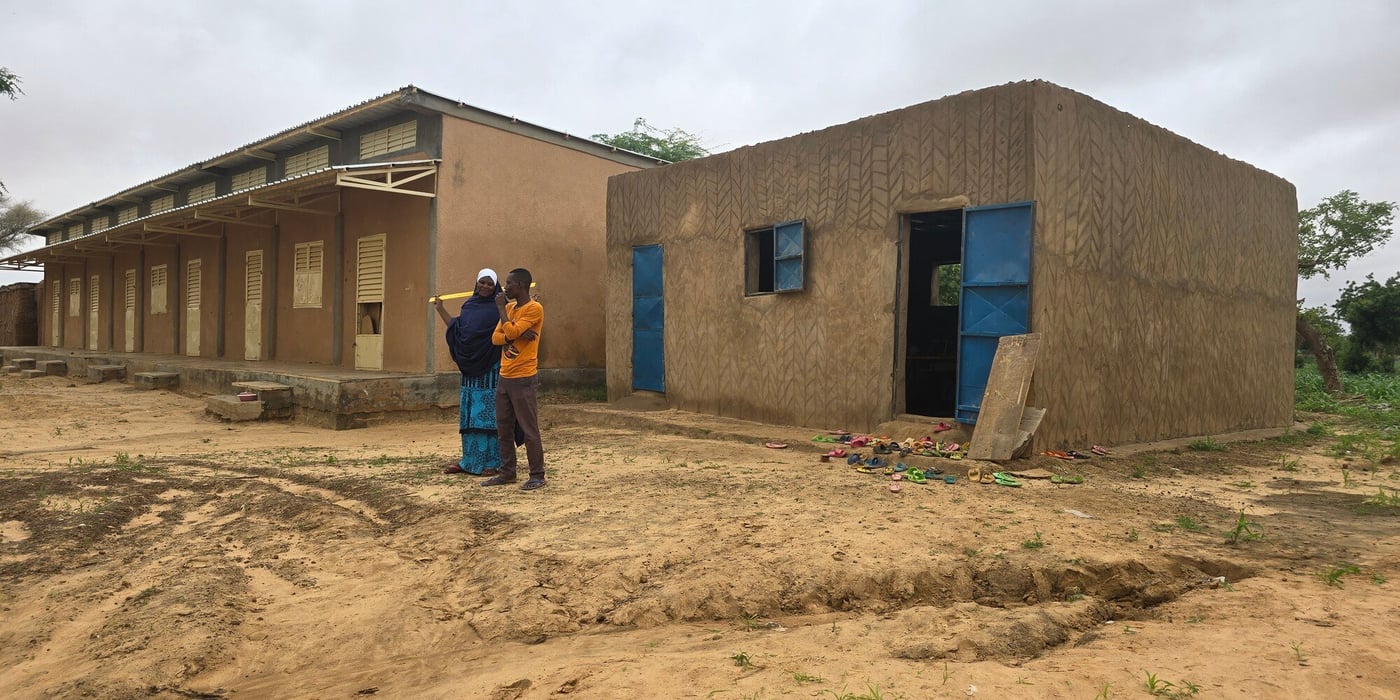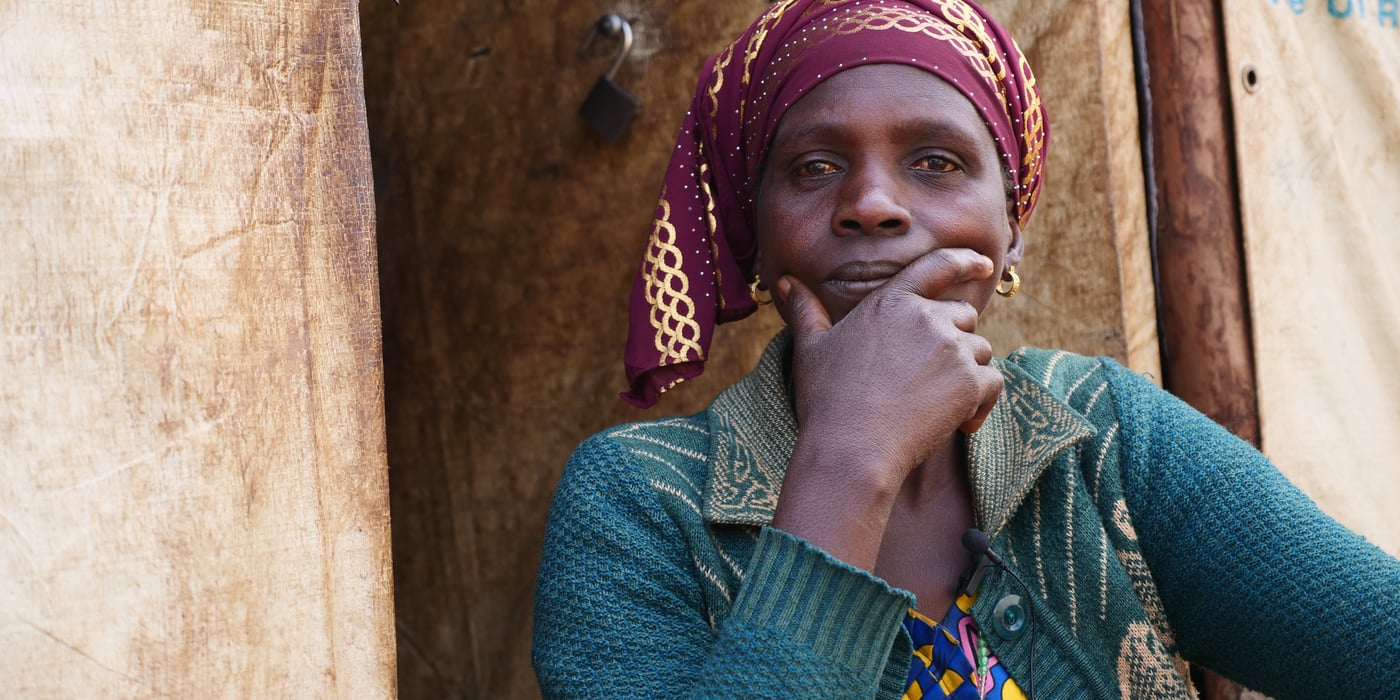
No one can deny the immense beauty of the forested highlands in eastern DR Congo. Small villages perched high up on grassy hilltops overlook lush valleys dotted with gargantuan hardwood trees.
But eastern DR Congo is no paradise.
Saidi Olivier, 39, will never forget the 12th of July 2016. “The bandits attacked our village in the middle of the night”, he tells. “I just managed to escape with my wife and children before they came to our house and killed our pigs and goats. The bandits took everything – our clothes, plates, pans ... We ran through the forest with nothing in our hands”, the displaced father of five tells with a soft-spoken voice, pausing between sentences as he recalls the attack.
Unfortunately, there is nothing unusual about Saidi’s story. More than 920,000 people were displaced during the course of 2016 in DR Congo, the highest number associated with conflict recorded globally according to the Global Report on Internal Displacement, by the Internal Displacement Monitoring Centre (IDMC) in Geneva.
The record high number of displacements continued in the first months of 2017, bringing the total number of internally displaced in DR Congo to 3.7 million by May 2017 according to the United Nations. North Kivu, where Saidi and his family live, is one of the hardest hit provinces with more than 800,000 internally displaced.
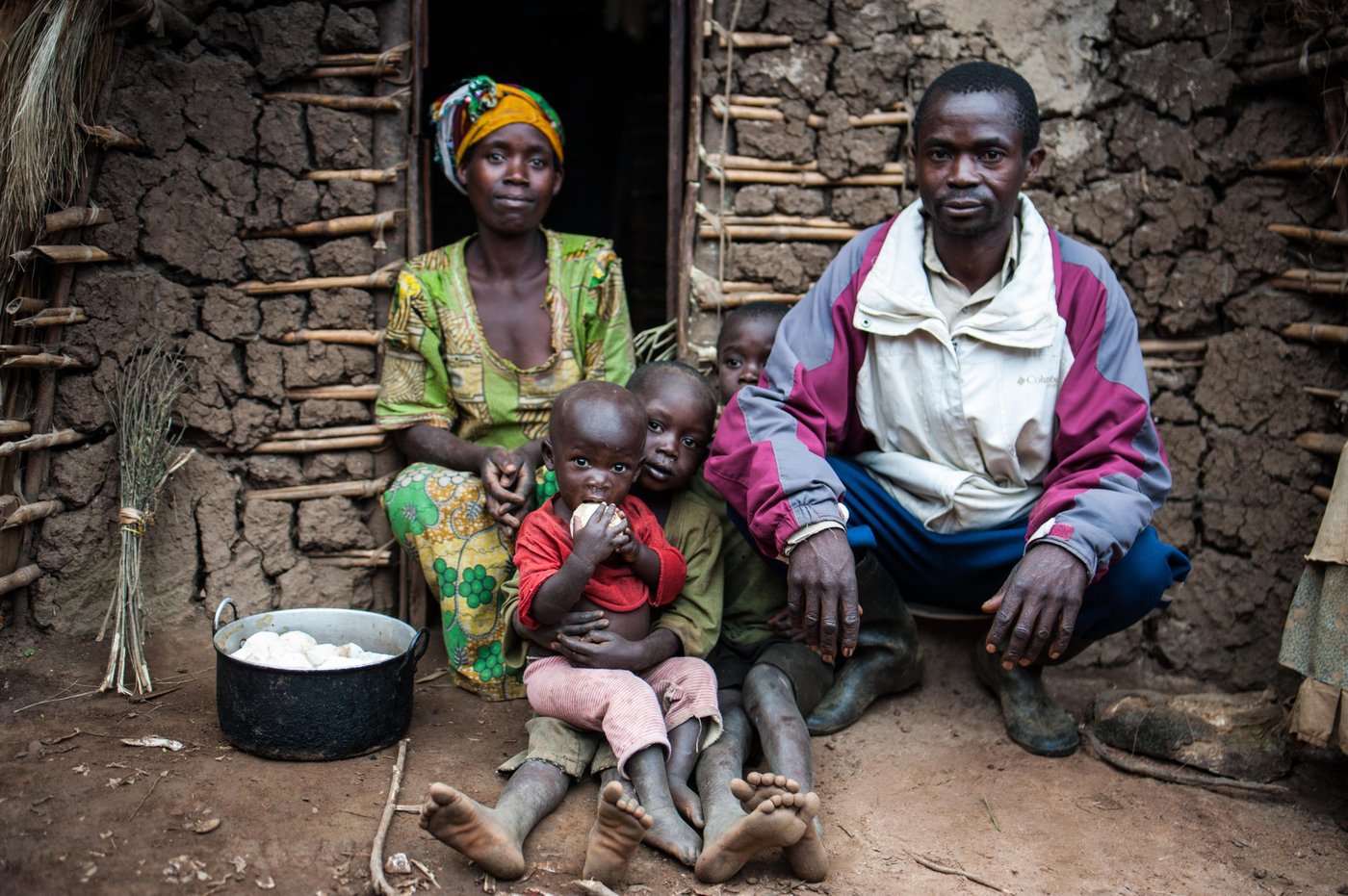
Despite the presence of the United Nation’s most expensive peacekeeping force in the world, MONUSCO, vast swathes of territory in North Kivu and other provinces remain under the control of armed groups. These rebel forces engage in frequent violent clashes with each other, as well as government forces and MONUSCO.
The European Commission’s (ECHO) representative in eastern DR Congo, Norik Soubrier, paints a bleak picture of the security situation in the Kivu provinces. “We have an extremely complex dynamic here with more than 70 armed groups engaged in unending armed conflict over power and resources,” Soubrier says. “The fighting results in displacement movements that create power vacuums, which again leaves space for new armed groups, leading to new conflicts and new displacements.”
Covered in clouds
For now, Saidi Olivier and his family have settled in the remote Mpati village in North Kivu province in an informal settlement for people displaced by conflict. Life is difficult here. Mpati is located in 2,100 meters above sea level and often covered in heavy clouds that unleash relentless downpours in the wet season.
In order to be able to pay for food and rent for their shelter, Saidi and his family offer their labour to local farmers. But the income is not enough to cover the family's basic needs. "We are hungry, and we don't even have proper clothes to protect us against the rain."
Children are hit especially hard by displacement. Saidi Olivier's three school-aged children have not seen the inside of a classroom for a long time. "There is not enough money to cover school fees", the father explains. This reality is shared with the majority of displaced families.
Besides losing out on school, there is a high risk that displaced boys – without education or aspirations for the future – will be recruited by armed groups. The Mpati area is fully under the control of armed groups, so Saidi Olivier's 12-old son, Heritier, may very soon have a Kalashnikov hanging from his shoulder.
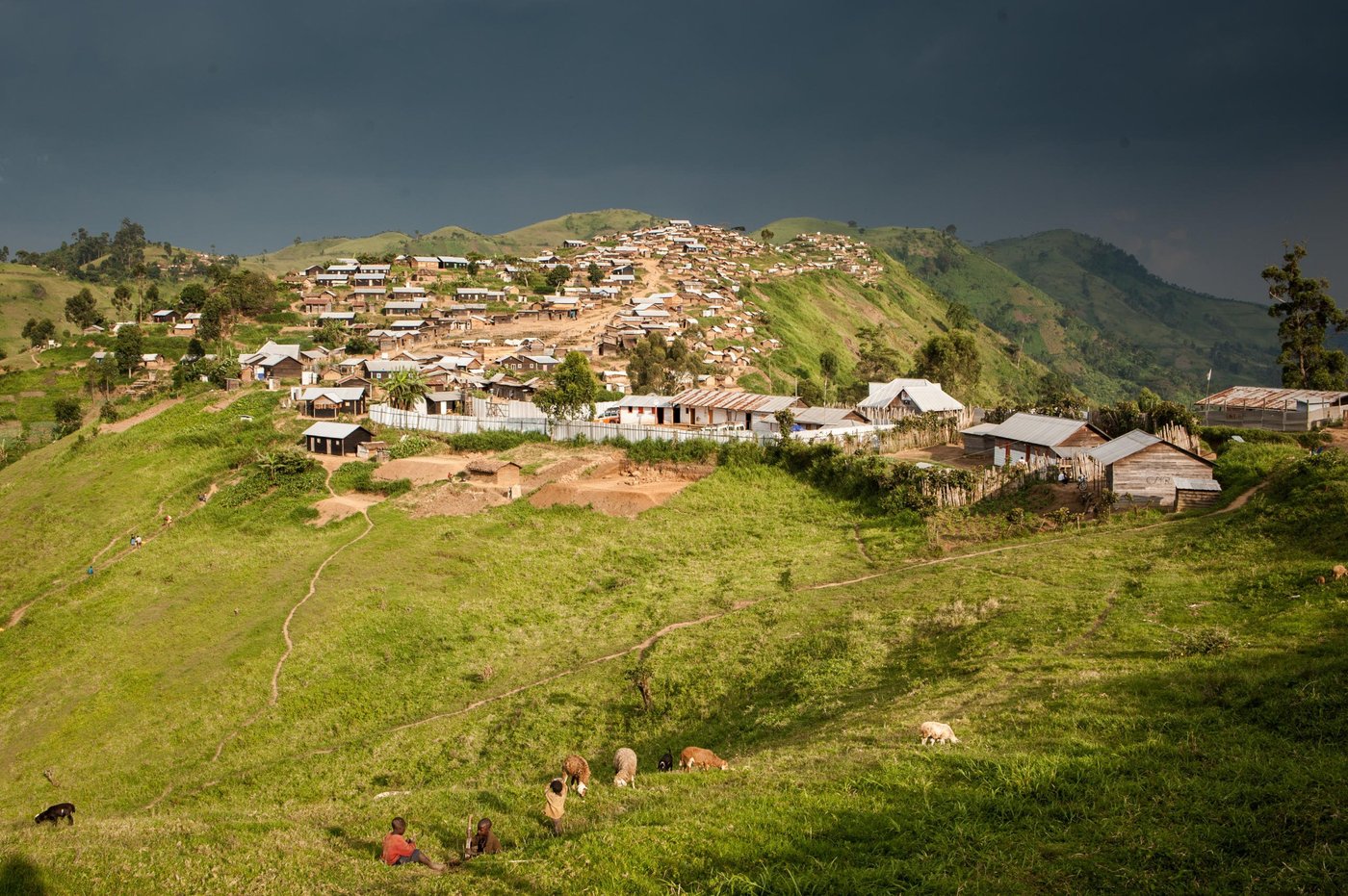
Catching up
To re-integrate internally displaced children into the formal school system and protect them against recruitment to armed groups, the Norwegian Refugee Council (NRC) has established catch-up classes in the Mpati area, where specially trained emergency teachers provide three-month intensive courses. At the same time, NRC is constructing ten new school buildings as well as rehabilitating existing classrooms around Mpati so the schools can accommodate the influx of displaced children.
A 12-year-old displaced boy, Monami Helimasi, spent three months in NRC's catch-up programme before joining the Lufunda Primary School in Mpati. "The catch-up training helped a lot," he says. "Before, I was just at home, helping my parents in the fields. But with this programme, I learned reading and writing skills that have made it easier for me to adapt to the formal school." Monami tells that his favourite classes are French and mathematics.
NRC's education support in Mpati is one component in a multi-sector assistance programme funded by the European Commission in the North and South Kivu provinces. In other interventions, NRC aims to improve food security by distributing foodstuff to the most vulnerable families as well as seeds to enable displaced farmers getting started with agriculture again. Additionally, NRC offers legal assistance to the same farmers to secure land title with access to agricultural land.
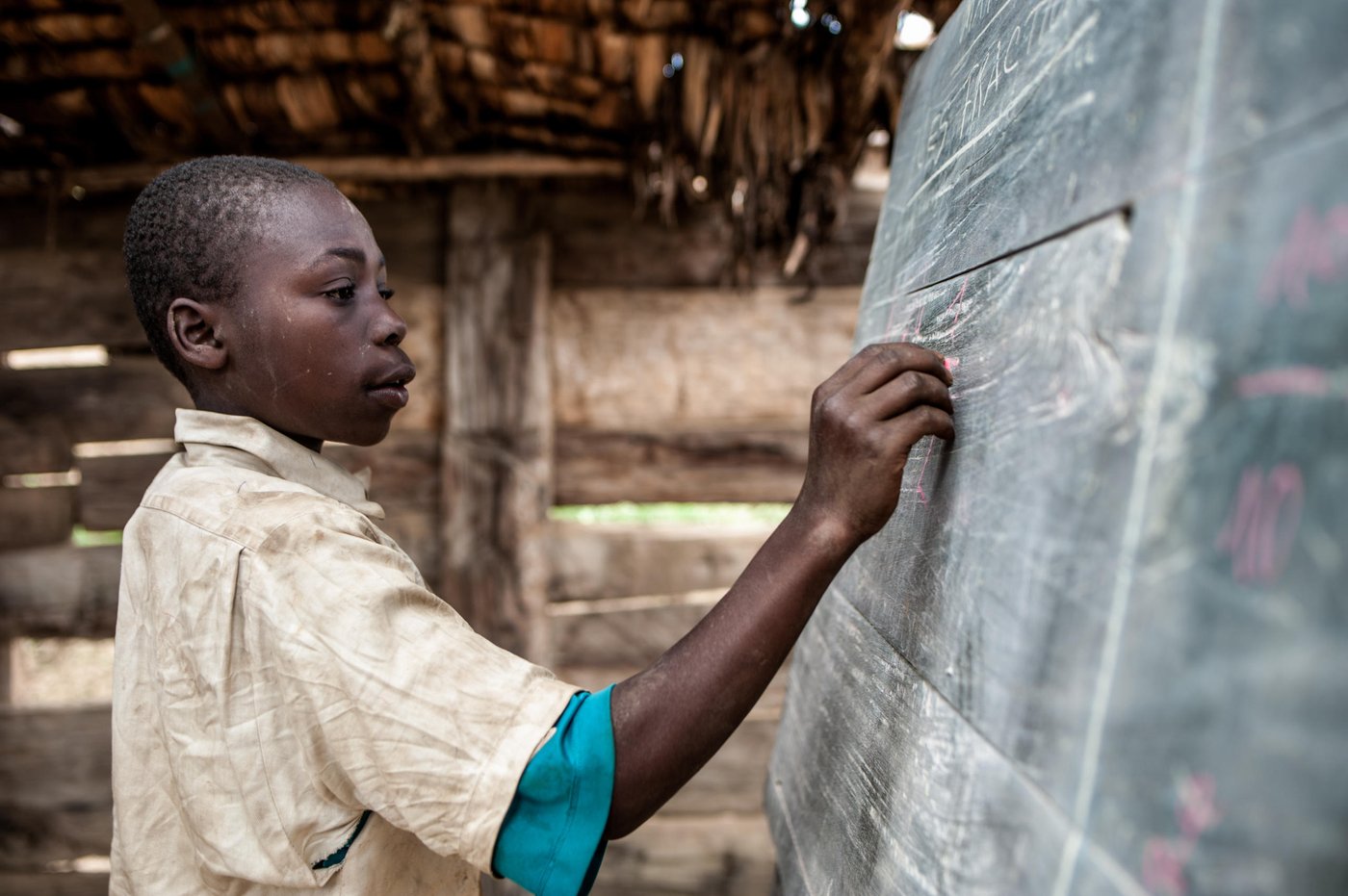
A forgotten crisis
The volatile security situation remains a serious challenge for the humanitarian operations. "The humanitarian crisis in DR Congo is escalating," says Ulrika Blom, NRC Country Director in DR Congo. "We experience frequent armed clashes in many areas, which makes it very difficult to reach and assist displaced populations."
Despite the desperate humanitarian situation in DR Congo, the NRC Country Director sees worrying signs of donor fatigue. "We are struggling to attract the necessary funding to assist the hundreds of thousands of extremely vulnerable displaced people scattered in remote areas. And with other major humanitarian crises dominating the headlines, we fear that this is turning into a forgotten crisis."
Disclaimer: This article covers humanitarian aid activities implemented with the financial assistance of the European Union. The views expressed herein should not be taken, in any way, to reflect the official opinion of the European Union, and the European Commission is not responsible for any use that may be made of the information it contains.


